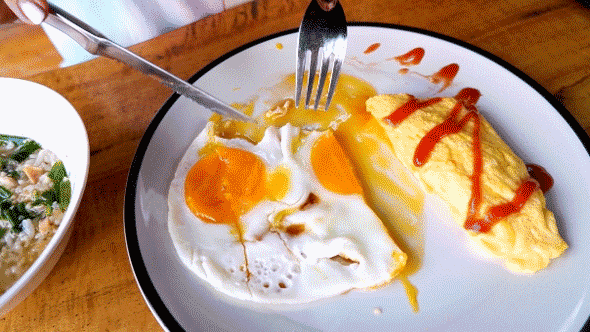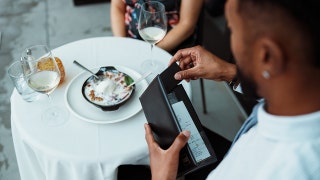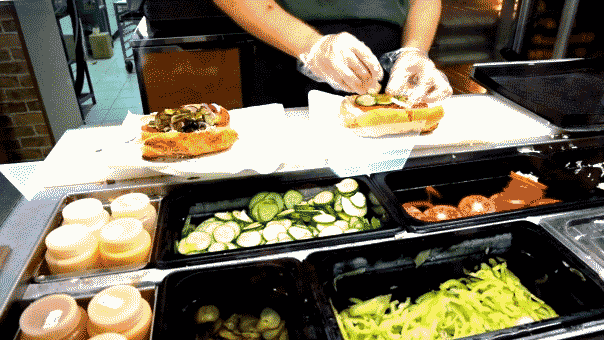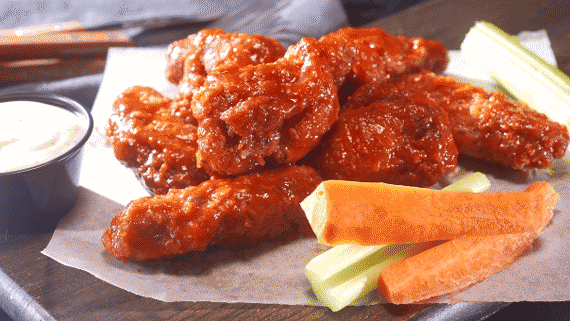Chef Tom Colicchio: Will we have an America without restaurants?
Famous chef Tom Colicchio, owner of Crafted Hospitality, discusses how the restaurant industry is coping with the coronavirus outbreak and what help he expects from Washington
Get all the latest news on coronavirus and more delivered daily to your inbox. Sign up here.
Stay-at-home orders and indefinite business restrictions amid the coronavirus pandemic have devastated the restaurant business as it once was, but it has also turned millions of Americans into home chefs overnight.
Cooking around the clock, especially while working from home or distance-learning with the kids, can definitely seem like a more daunting task these days. According to celebrity chef Tom Colicchio, however, meal time can be simplified with a few smart tips and tricks.
HOW TO HELP YOUR FAVORITE RESTAURANTS DURING THE CORONAVIRUS OUTBREAK
In conversation with Fox News, the “Top Chef” judge and producer discussed how to maximize the ingredients you’ve already got on hand, as well as which ingredients to buy and easy dinner recipes to try as the COVID-19 outbreak continues.
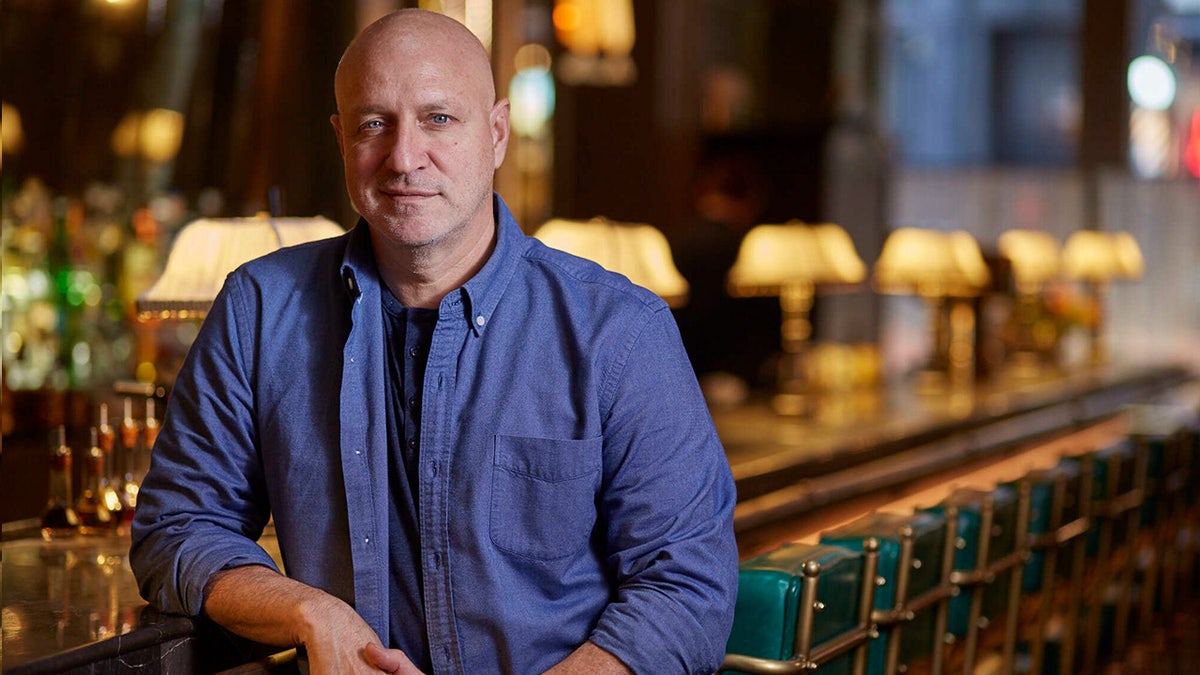
Cooking around the clock can be simplified with a few smart tips and tricks, celebrity chef Tom Colicchio said. (Tom Colicchio)
A restaurateur and passionate food activist, Colicchio also shared his predictions for the foodservice industry’s ultimate road to recovery amid an uncertain future.
FOX NEWS: As the weeks wear on, many Americans are cooking a whole lot more, while making less-frequent trips to the grocery store. What are some tricks to make the most of the ingredients you’ve already got in the fridge and pantry?
Tom Colicchio: I think before we look at what’s in the fridge and the pantry, it starts with shopping with intention, planning your meals ahead of time. And then not only planning the meals, but looking at the possible leftovers and maybe planning for those, too.
The other night I had some ribs that we made, and there was some rice, roasted carrots and fennel salad. The following day for lunch, I had leftover rice, I had a few leftover ribs, so I took all the meat off the bones, chopped it up really fine. I had some scallions, took the roasted carrots and I cut those up, and I made fried rice. Finished it with a cracked egg, put it in at the end — it’s simple. I had, essentially, pork fried rice!
So, again, knowing that when I’m putting the stuff away after dinner, I’m looking at it, going, “How am I using this next?” Obviously, you could just eat leftovers, but I just reimagined those leftovers into another meal. It’s really just stretching those dollars as best you can. But it starts with shopping and at least having a pretty good plan that when you leave [the store] you have a certain meal set up, ready to go.
FOLLOW US ON FACEBOOK FOR MORE FOX LIFESTYLE NEWS
FOX: As the COVID-19 outbreak continues, what are some smart kitchen staples to stock up on?
Colicchio: I think a lot of people are going to the supermarket and seeing where the “holes” are. Beans, lentils, pasta and things like that, things that you don’t have to refrigerate and aren’t going to go bad.
I had a problem with bread. I started baking recently, and I ran out of bread flour, and I could not find it any. I finally had to go out to a supplier and order a 50-pound bag! Little things like that, you can’t find.
But also, if you don’t want to cook every meal, having something like frozen peas is great. I cook some pasta and peas and that’s a dinner, especially one that my kids like. Frozen vegetables, I think that’s a good thing to have. And then fresh stuff, I think a lot of shoppers early on got nervous and they started shopping and they got too many fresh vegetables. And then all of the sudden, things start to wilt. The strategy for that is, you can always freeze everything yourself. So if you have a lot of leftover carrots, you can cut them, slice them, blanch them real quick in boiling water, chill them down under cold water, and put them in a Ziplock bag and freeze them, and then they’re all ready to go, instead of letting them go bad.
The other thing to do is if you have vegetables like onions, carrots, celery, leeks and maybe some hard squash, like butternut squash. You can always throw a quick soup together, it’s really easy to do. There are a lot of different strategies you can use to stretch the dollar and use the things that are there. And I think also, taking stock of your pantry. I’m sure there is plenty of stuff in your pantry that you haven’t seen in months that, all of a sudden, you get creative around.
CLICK HERE TO SIGN UP FOR OUR LIFESTYLE NEWSLETTER
FOX: Whether you’re cooking for yourself or a whole family, how can home chefs ensure no food is being wasted?
Colicchio: You can start cooking and prepping for those meals in advance, if you have the time.
The other night, I did a quick dinner. I have a farmer near me who raises pigs but he also has smoked ham hocks. I’m looking to just buy the loins and the racks, everyone’s going to want those. But I’m going to buy the shanks, so I’ve got smoked shanks. I took barley, with some carrots, celery, onions, cut it into small pieces, sweated it in olive oil. You put in the barley, smoked ham hocks, some chicken broth in there, cover it low simmer, and that was a one-pot meal that was really delicious. The following day, just take that same barley that was left over and dress it with some olive oil and vinegar and make a barley salad. I used up the leftover smoked pork that was there. And so I got two meals out of one in that one.
It’s a lot of simple things. You don’t have to go crazy and do too much, just do some simple things really well.
FOX: What recipes have been popular in your house during the pandemic?
Colicchio: I’ve been cooking up a storm! We’re into trying to keep the kids on some sort of school schedule [with] distance-learning, and I find myself busier than I’ve ever been. It was funny, the other day, we just decided to do something really small [for dinner], and my son was like “We’re not sitting down to have dinner?! What do you mean?”
"It’s a lot of simple things, you don’t have to go crazy and do too much, just do some simple things really well."
In terms of the meals, it’s pretty simple stuff — pastas, vegetables, we’ll just do a simple roast chicken and some roast vegetables. I like to do one-pot meals. So for me, getting a small roasting pan and putting like sliced fennel, potatoes, red peppers, some garlic, even a couple slices of ginger and some herbs. I kind of let that start to cook and literally take chicken pieces and put it over the top and put it in a very hot oven and that’s it! You take it out and put it on a table and that’s dinner!
CLICK HERE FOR FOX NEWS' CONTINUING CORONAVIRUS COVERAGE
FOX: When service finally resumes, what changes do you foresee for the restaurant industry? What will dining be like post-coronavirus?
Colicchio: That’s a great question… it’s something that so many of us are struggling with. I co-founded an organization called the Independent Restaurant Coalition, to sort of help focus on the needs of the industry right now, especially the needs coming out of government.
We also spend plenty of time trying to figure that out, because we all believe this is going to change a lot of industries and how business is conducted. It’s going to change how we operate restaurants, and I don’t know what that is yet.
Clearly we have to come up with some hybrid model, especially for the next year. Because à la carte dining, with the spacing that [we'll need to implement], and knowing that most likely bartenders, waiters are going to have to wear masks… People aren’t necessarily going to be very comfortable going to a restaurant like that.
If you have sales through private parties or banquet spaces where you have 120 to 300-seat banquet rooms, that business isn’t coming back any time soon. So we have to move to kind of an à la carte model, with also to-go orders. A combination of sort of chefs, and partnerships with chefs, suppliers and farmers, and stuff like that, to create takeaway boxes that can be picked up at the restaurant. So yeah, I don’t know yet.
Definitely when it reopens there will be some sort of a combination of different ways to do business… at least to get through for the next year, or until we find a vaccine.
